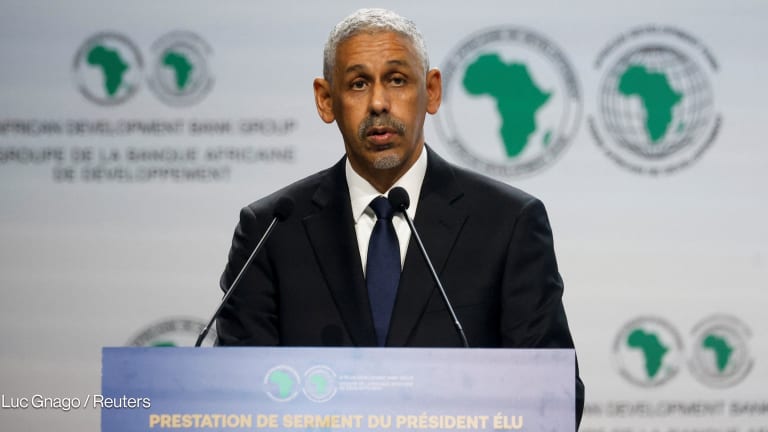
WASHINGTON — Seeking to address “the last few weeks of speculation about the future of the World Bank Group,” outgoing World Bank President Jim Kim sent a letter to staff Monday.
In the letter, which was shared with Devex, Kim praised the institution’s board, CEOs, and employees and offered an explanation for his departure that seems unlikely to satisfy the curiosity of those who felt blindsided by his abrupt resignation — more than three years before the end of his second term.
“I believe the World Bank Group is well positioned to capitalize on great opportunities in the coming years. I also believe that in my particular case, this is the right time to leave.”
— Jim Kim, president, World BankKim wrote that what he will remember most are the “private moments” with staff.
“I often left those meetings thinking there was no place in the world I would rather be,” he wrote. “So why leave? I believe it’s time.”
“We have a strong board, strong CEOs, and strong staff — the best staff in the world of development. I believe that my role as a leader was to support your great ideas, encourage you not to give up on them, and to push you — all while creating an external political environment that would support the growth and impact of the World Bank Group for years to come,” he wrote.
Kim echoed a common perception that in recent months he has delegated significant operational authority to other bank leaders, in particular the institution’s first chief executive officer, Kristalina Georgieva.
“In the last year and a half, I have delegated more responsibility and authority to the CEOs, and they are more than equal to the challenge,” he wrote.
More on Jim Kim’s resignation:
► Jim Kim's resignation sparks questions about the next World Bank president
Kim’s first term was marked by a tumultuous relationship with many parts of the institution’s staff. In the first year of his second term, however, he helped guide the bank through challenging political headwinds to a successful capital increase. Kim cited that achievement as one reason for his decision to move on from the bank.
“I believe the World Bank Group is well positioned to capitalize on great opportunities in the coming years. I also believe that in my particular case, this is the right time to leave, especially following the capital increase,” he wrote.
Kim’s departure — officially at the end of this week — ignited both a race to replace him and a renewed debate about whether the United States should continue to hold sway over the World Bank’s presidential appointment process. Given the Trump administration’s views on issues such as climate change and skepticism about multilateral institutions and development assistance in general, that question has grown more urgent.
In his letter, Kim struck an optimistic note about the prospects for the World Bank to continue leading, even on issues that seem at odds with the Trump administration’s positions.
“On the critical issue of our time, Kristalina announced at the COP 24 meetings in December that we would contribute $200 billion to the fight against climate change over the next five years. This makes us by far the largest contributors to climate-related efforts in developing countries and represents a fundamental change in the role of the World Bank Group in this movement,” he wrote.
The bank’s executive directors agreed that nominations for the next president can be submitted between Feb. 7 and March 14, as they attempt to select a new president before the World Bank Spring Meetings in April.








